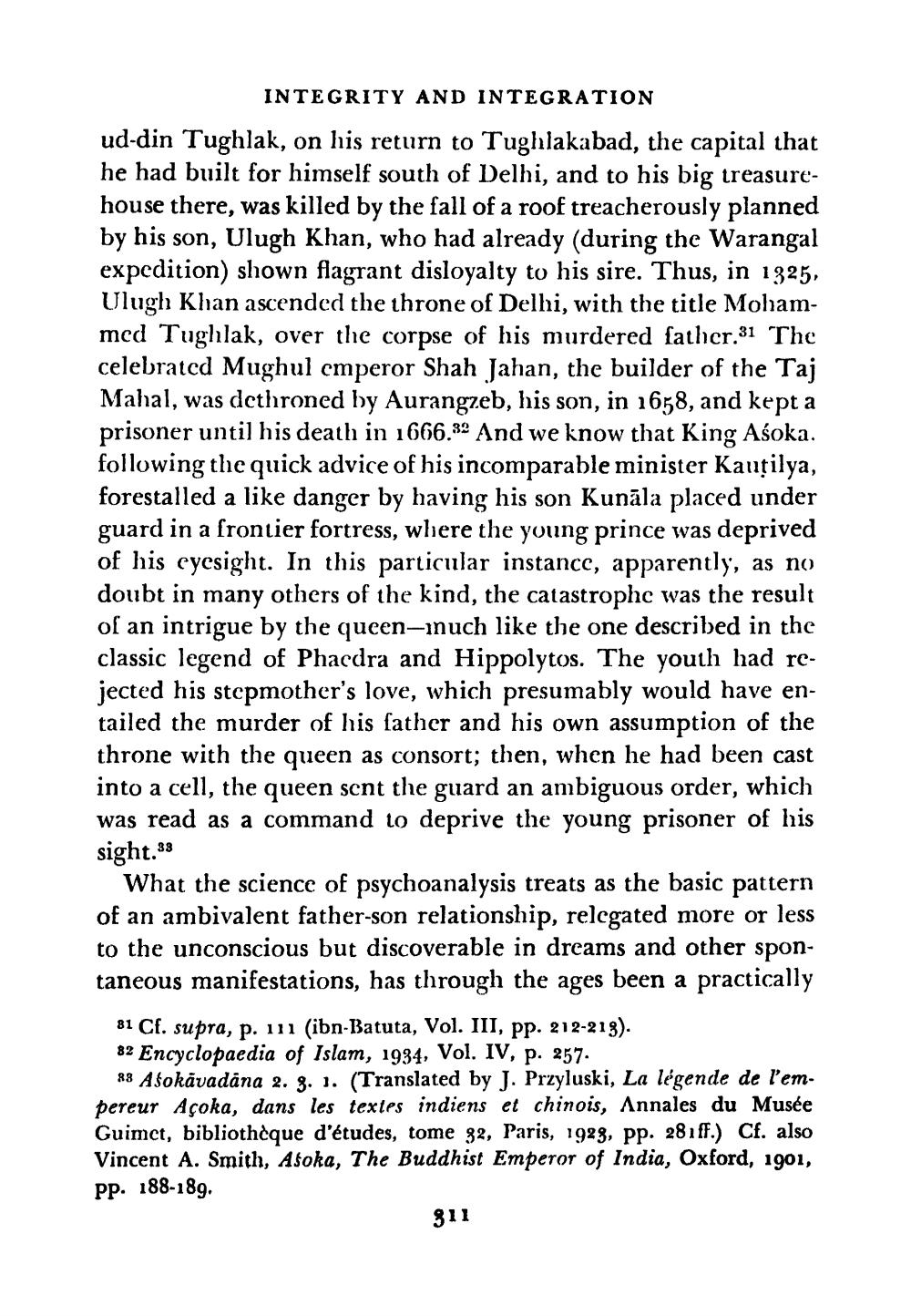________________
INTEGRITY AND INTEGRATION ud-din Tughlak, on his return to Tughlakabad, the capital that he had built for himself south of Delhi, and to his big treasurehouse there, was killed by the fall of a roof treacherously planned by his son, Ulugh Khan, who had already (during the Warangal expedition) shown flagrant disloyalty to his sire. Thus, in 1325, Ulugh Khan ascended the throne of Delhi, with the title Mohammed Tughlak, over the corpse of his murdered father.31 The celebrated Mughul emperor Shah Jahan, the builder of the Taj Malal, was dethroned by Aurangzeb, his son, in 1658, and kept a prisoner until his death in 1666.32 And we know that King Aśoka. following the quick advice of his incomparable minister Kautilya, forestalled a like danger by having his son Kunāla placed under guard in a frontier fortress, where the young prince was deprived of his eyesight. In this particular instance, apparently, as no doubt in many others of the kind, the catastrophe was the result of an intrigue by the queen-inuch like the one described in the classic legend of Phacdra and Hippolytos. The youth had rejected his stepmother's love, which presumably would have entailed the murder of his father and his own assumption of the throne with the queen as consort; then, when he had been cast into a cell, the queen sent the guard an ambiguous order, which was read as a command 10 deprive the young prisoner of his sight.38
What the science of psychoanalysis treats as the basic pattern of an ambivalent father-son relationship, relegated more or less to the unconscious but discoverable in dreams and other spontaneous manifestations, has through the ages been a practically
81 Cf. supra, p. u (ibn-Batuta, Vol. III, pp. 212-213). 82 Encyclopaedia of Islam, 1934, Vol. IV, p. 257.
88 Asokāvadana 2. 3. 1. (Translated by J. Przyluski, La légende de l'empereur Açoka, dans les textes indiens et chinois, Annales du Musée Guimet, bibliothèque d'études, tome 32, Paris, 1923, pp. 281 ff.) Cf. also Vincent A. Smith, Asoka, The Buddhist Emperor of India, Oxford, 1901, pp. 188-189.
911




